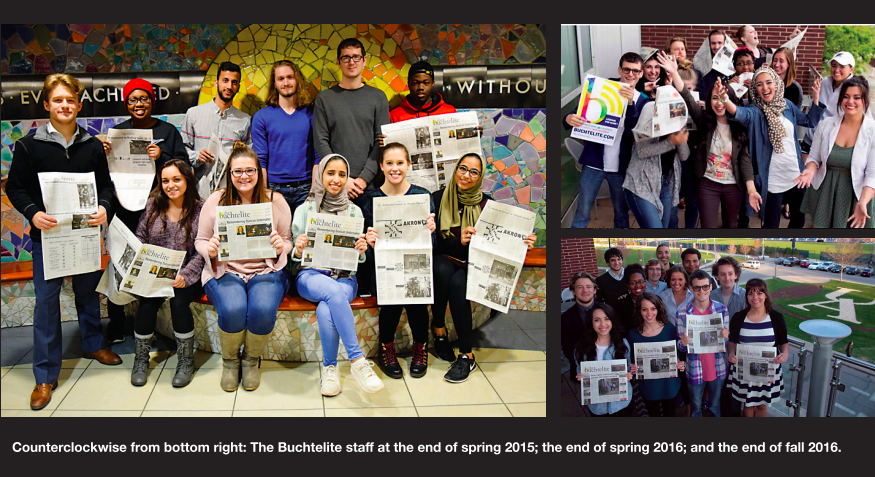“Seung-hui Cho obviously was a troubled student. His roommates said he spoke to no one. Instead of using his given name, he referred to himself as question mark, almost intentionally declaring that nobody could understand him. He was a young man in need of help.”
“
Seung-hui Cho obviously was a troubled student. His roommates said he spoke to no one. Instead of using his given name, he referred to himself as question mark, almost intentionally declaring that nobody could understand him.
He was a young man in need of help.
As Virginia Tech administrators re-evaluate how they handled the situation, university officials across the country are also evaluating how to handle a suspicious student.
At the University of Akron, there is not much that administrators can do aside from offering help.
If a student is arrested, the Student Judicial Affairs office holds a hearing to determine the academic future of the student, in accordance with state law. Violation of the student code of conduct can also lead to an investigation at Akron, according to the student handbook.
But what if a student has broken no rules, but shows signs of depression or rage, as was the case with Cho?
For students living in residence halls, there are options, according to John Messina, director of Residence Life and Housing.
In any situation where unusual behavior is observed in the residence halls, and staff is made aware, they respond and meet with the student, Messina said in an e-mail response. Should the actions be erratic, the police or a counselor may be called to respond to conduct an assessment. If a determination is made that the behavior is disruptive, threatening or harmful, a determination may be made for student referral for observation (i.e. Portage Path, Akron General).
But that is only if a student’s behavior is considered threatening. For students who seem troubled but are non-threatening, there is another option.
Students are oftentimes referred by staff to the Counseling, Testing and Career Center for a variety of reasons.
According to the CTCC Web site, help is offered in deciding on a major and a career direction; in improving study skills or overcoming learning problems; in coping with a personal crisis; in dealing with a wide range of personal issues such as concerns about self-esteem, sexuality, ethnic identity, alcohol and drugs, family conflicts or relationship issues.
However, students at Akron cannot be forced to attend, as was the case at Virginia Tech. In the wake of the shooting, the issue of how universities can deal with suspicious students is likely to come up with a new task force on security that Gov. Ted Strickland has created.
In the meantime, public universities have few options – even at a school as large as Akron.
In a residential environment as large as ours, there have been a wide range of concerns from ‘upset over a breakup’ to attempted suicide, Messina said. In each case, if staff is able to respond, we follow the summarized protocols.
After it was discovered that multiple felons were living in Akron dorms, Messina and other administrators were granted a little more leverage. Students are now required to self report criminal histories. After examining the severity of the crimes, UA administration has the option to disallow residence.
After the policy was implemented, eight students were flagged with serious felonies and evicted. Each of the cases are currently under review by the office of student affairs.
A more aggressive approach may have already started at other schools, though. Wednesday, The Associated Press reported that a student at the University of Colorado was arrested after making comments in class that other students deemed sympathetic toward Cho. He was arrested on suspicion of interfering with staff, faculty or students of an education institution.
“

